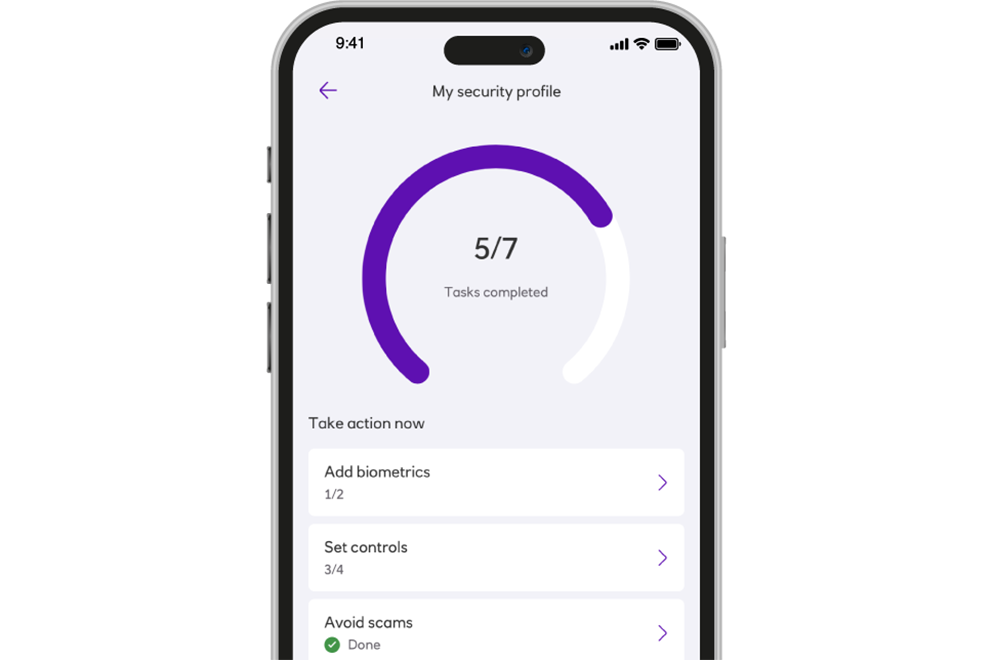Keep your money secure by learning how you can act to avoid common types of fraud and scams.
Overlay
Impersonation scams
Scams where someone pretends to be from your bank or police, or someone else who you trust.
Information Message
Purchase scams
Scams when buying products or services.
Information Message
Investment scams
Scams targeting your investments.
Information Message
Romance scams
Scams that exploit love and friendships.
Information Message
Telephone fraud
Fraudulent calls you get on the phone.
Information Message
Email fraud
Fraud that comes to your inbox.
Information Message
Text fraud
Fraud sent through text messages and other messaging channels.
Information Message
Money mule scams
Scams that use you to move money illegally.
Information Message

See why My Security Profile has over 10 million visits
With so many visits to My Security Profile, it's clear that people like you are putting their security first.
Personalised steps to protect yourself are just a few taps away.
Ready to experience it for yourself?




